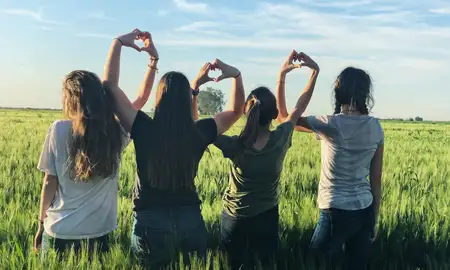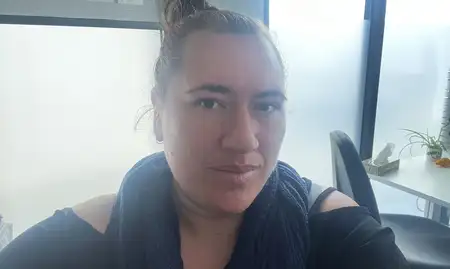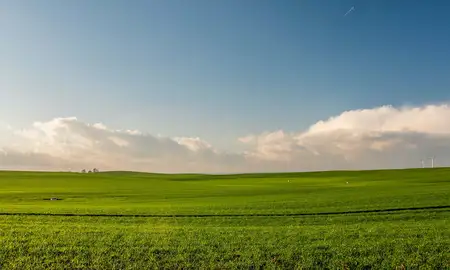
The positive mental health and resilience programme WellMates, developed by Lincoln University, is being launched for a second year at Te Kunenga ki Pūrehuroa Massey University after researchers found it to have significantly benefitted participants.
WellMates is designed to promote mental health and wellbeing to first year agricultural students, many of whom fall within the young adult category. While recent studies have shown farmers are prone to experiencing burnout, young people between 17-24 are particularly vulnerable within this community. This group is often underrepresented in mental health promotion strategies despite making up a quarter of farmer suicides.
School of Social Work Senior Lecturer Dr Nicky Stanley-Clarke, who played a pivotal role in bringing the programme over to Massey, has been among the researchers studying what effect WellMates is having. She says the research has shown WellMates is having a positive effect in increasing awareness and building upon existing knowledge of mental health.
“We conducted surveys on participating agricultural students before and after engaging in the programme, as well as a control group of agricultural students in the same year who didn’t attend. Students who participated in WellMates showed greater mental health and wellbeing knowledge than students who didn’t. WellMates helped them build their skills and improve their confidence in advocating for themselves and others.”
A second round of funding from Massey Lincoln Agriculture Industry Fund (MLAIF) (formerly known as Massey – Lincoln and Agricultural Industry Trust) has provided the opportunity for WellMates to also be offered online this year.
“We’ve worked with the learning designers here at Massey to translate the content from in-person courses into a module embedded within a learning platform such as Stream. The team has been fantastic at ensuring it’s engaging for our distance cohort by including pop-ups, videos and scenarios. Our Young Farmers facilitators have recorded voiceovers to guide people through the module,” Dr Stanley-Clarke says.
“Mark Rainier from the Student Services team has supported the delivery by peer reviewing the online module and ensuring the appropriate resources are immediately available, including Massey’s wellbeing and counselling services and TalkCampus.”
Dr Stanley-Clarke says an interesting trend that appeared in the pre-programme survey was the number of students who presented with optimism bias.
“Many students tend to underestimate the possibility of experiencing stressful situations, believing those scenarios are unlikely to happen to them or will resolve without the need for support services. We learnt from our research that peer-to-peer connection was found to be really important and can help undo this type of thinking.”
WellMates was initially run as a two-hour conversation lead by Lincoln students who flew up to deliver the programme. Dr Stanley-Clarke says this year they’re partnering with Massey’s Young Farmers Club to improve connection and combat optimism bias.
“Members of the club have volunteered to be facilitators and deliver the programme. Students will get to hear from people like them about how important it is to take steps to manage your wellbeing and to know how to access support which helps break down stigma, particularly around the ‘tough farmer’ ideal. When you see others like you having that conversation, you’re more likely to join in and be engaged.”
Other changes to be implemented in the programme include reconsidering the timing of the programme within the semester and ensuring it’s embedded into the course.
“It’s important to be strategic with timing to ensure students are open and receptive to the messages. It can’t be in the middle of exams or right before semester break when assignments are due. We’ve also found it’s vital students view this course as important and that it’s sold by lecturers as such because otherwise when students get busy, they’ll make the decision to skip it, thinking it won’t affect them. Getting people in the room so they can engage with the messaging is important, so having it as part of the course with an assessment or participation grade attached can be good motivation,” Dr Stanley-Clarke says.
Dr Chris Andrews, who runs a course on agriculture environment within the Animal Science paper, has also joined the WellMates team. Dr Stanley-Clarke says his contribution will help to continue improving the framework and delivery.
“Dr Andrews has been very supportive and passionate about WellMates since the beginning, and given it’s his course being used to host the programme, bringing his enthusiasm into the team will help take it further.”
Following the second run of WellMates, research efforts will be repeated to gauge what effects the improvements have made and to see how students respond to the programme online. Dr Stanley-Clarke says continued research will help expand the programme into other spaces adjacent to agriculture as well as outside of it.
“The research not only allows us to know if the programme is working and how to improve it, but also to share this information to provide guidance for others delivering mental health and wellbeing programmes to this population. We hope to see this programme continue to grow because by targeting the younger groups moving into rural communities, they can take back what they’ve learnt and pass it along.”
“WellMates is a critical feature to uphold the university’s commitment to the Code of Pastoral Care of Tertiary Students, as it provides proactive information on mental wellbeing and services providing support. Any lives lost to suicide is too many. Whatever we can do to build and strengthen people’s knowledge around mental health wellbeing, as well as share how to reach out to access support and how to support others, has to be good.”
Related news
Massey students learning to be WellMates
Agricultural students are receiving a boost to their mental health thanks to a new wellbeing programme being piloted at Massey.

Strengthening hauora in rural communities
For nurse practitioner intern Nicole Broodkoorn, Ngāpuhi, her nursing journey has always been a way to lead her back home to make a difference in her community.

Massey and Lincoln Universities to collaborate on primary sector projects
Five research projects which will benefit the primary sector have been announced as recipients of funding from the Massey – Lincoln and Agricultural Industry Trust Capability Development and Research Fund (MLAIT CDR).
